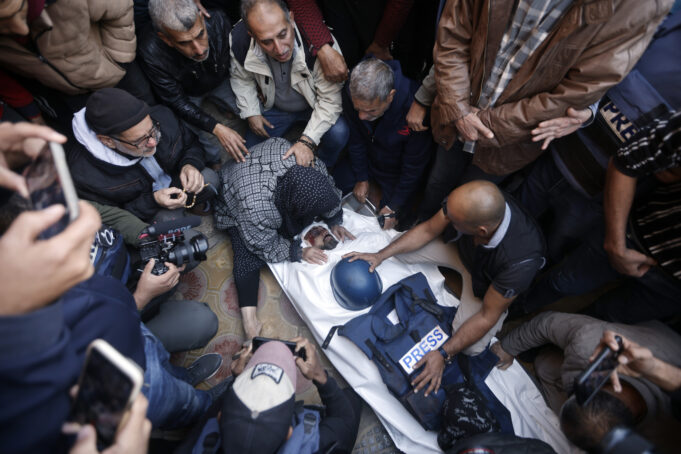May 3rd was World Press Freedom Day. That date represents the anniversary of the Windhoek Declaration, a 1991 statement named for the capital of Namibia that asserted the need for “an independent and pluralistic African press.”
A Windhoek seminar focused on “promoting an independent and pluralistic African press” was held in partnership with other UN agencies such as UNDP (United Nations Development Program).

The event was supported by 12 international agencies, ranging from Nordic funders, the International Federation of Journalists, Friedreich Ebert Stiftung, and the World Association of Newspapers.
A total of 63 participants from 38 countries attended. Hage Geingob, the then-prime minister of newly independent Namibia, set the tone by highlighting the importance of independence and a watchdog role for the press, explained Alain Modoux.
He is the former Assistant-Director General for Communication and Information for the United Nations Educational, Scientific and Cultural Organization (UNESCO).
As the United Nations explained, the annual event is “a reminder to governments of the need to respect their commitment to press freedom,” but that it is also “a day of reflection among media professionals about issues of press freedom and professional ethics,” as well as a chance to “pay tribute to journalists who have lost their lives in the line of duty.”
Another World Press Freedom Day is behind us, and as Jan-Werner Müller, a professor of politics at Princeton University, wrote in the latest Foreign Policy, “News media organizations will dutifully display lists of journalists imprisoned or killed around the world, from Belarus to Myanmar.” It is important to acknowledge these victims, the professor wrote.
“But it’s also time to recognize that analysts and policymakers need a new framework to understand how a new generation of authoritarian leaders disables critical coverage without putting journalists in jail or physically harming them.”
The problem with most Western narratives is they don’t echo the people they say they represent.
So, when the Zionist state of Israel shuts down Al Jazeera’s operations in the country, in an already hostile environment for journalists covering the war in Gaza, there is only milquetoast response from those Western press outlets and heads of state that claim a free and independent press is sacrosanct.
In Edward S. Herman and Noam Chomsky’s 2002 book, “Manufacturing Consent: The Political Economy of the Mass Media,” what emerges from their work is a powerful assessment of how propagandistic the U.S. mass media is.
It includes how the corporate-owned press systematically fails to live up to their self-image as providers of the kind of information that people need to make sense of the world, and how we can understand their function in a radically new way.
Then there is the gain in weight of the 800-pound ubiquitous gorilla in the room, designed to redefine journalists’ criticism of the genocide happening in Gaza and the West Bank.
In the face of the ongoing retaliation for their Gaza war coverage, the National Writers Union (NWU) in its recently released report entitled, “Red Lines: Retaliation in the Media Industry During the War on Gaza,” recorded 44 cases of retaliation affecting over 100 media professionals between October 7, 2023, and February 1, 2024, in North America and Europe.
This information was noted on the International Federation of Journalists (IFJ) website, iff.org.
These retaliations particularly targeted media workers of Middle Eastern or North African descent and those who identify as Muslim, the report noted. The IFJ welcomed the exhaustive report conducted by its affiliate the NWU and strongly condemned targeted reprisals against journalists and media workers for their coverage of the war in Gaza.
As IFJ General Secretary Anthony Bellanger said: “Journalists must be allowed to do their work without fear of reprisal or censorship, especially when their reporting serves as a vital information source for the global community. We call on media employers to uphold newsroom independence and protect their journalists.”
Follow @JehronMuhammad on X, formerly Twitter













